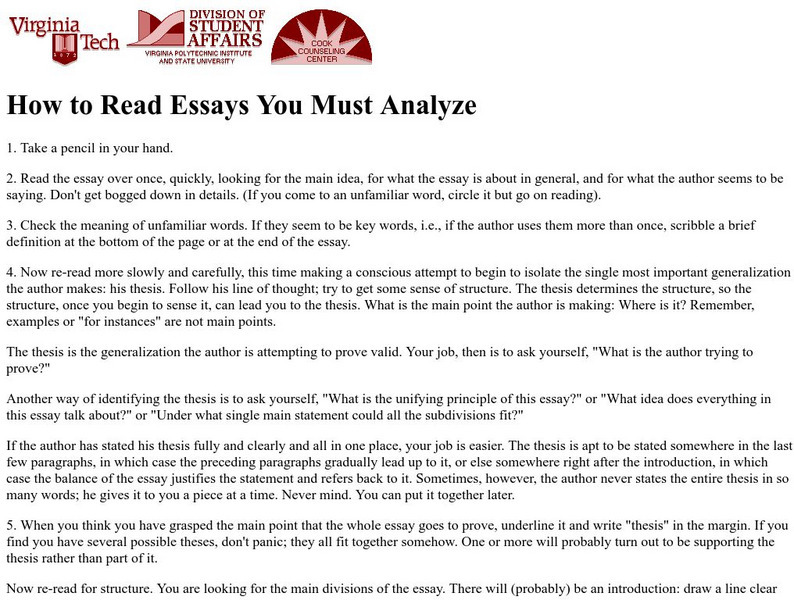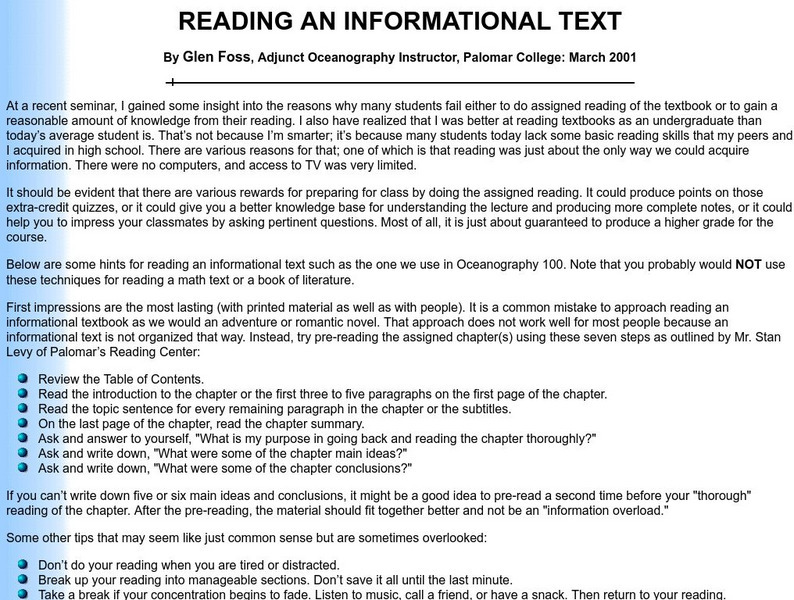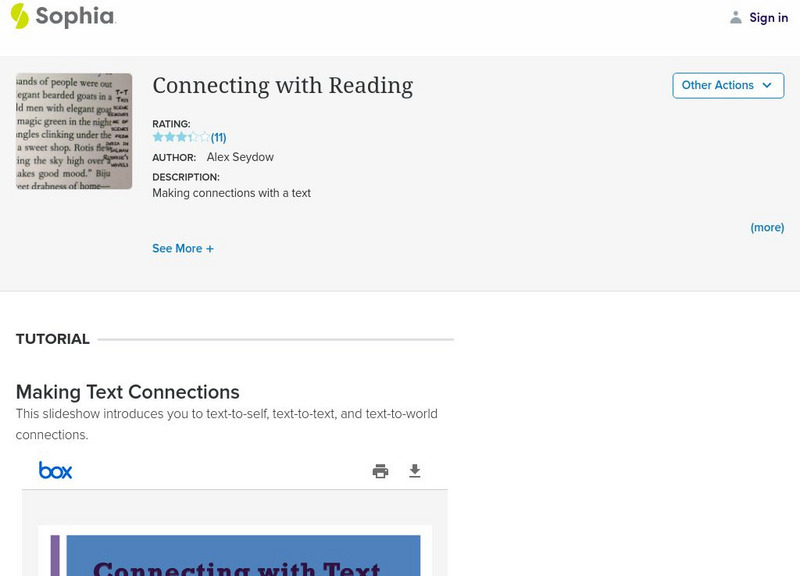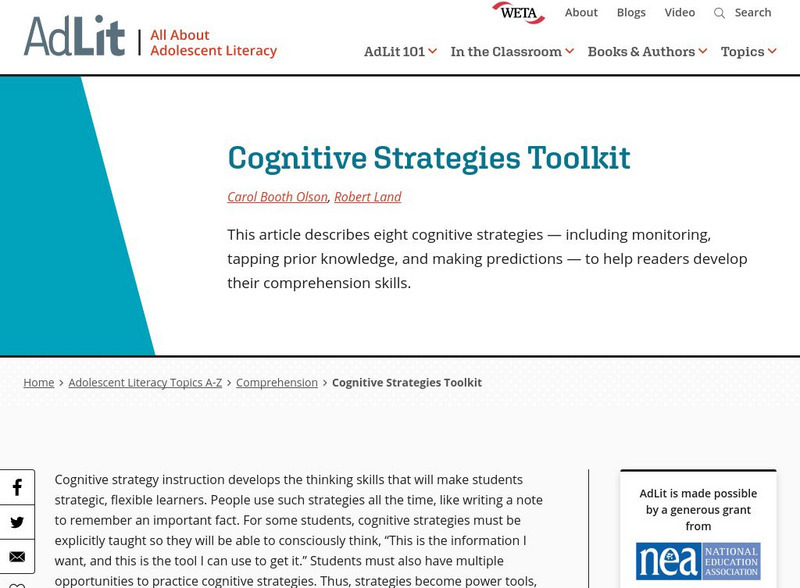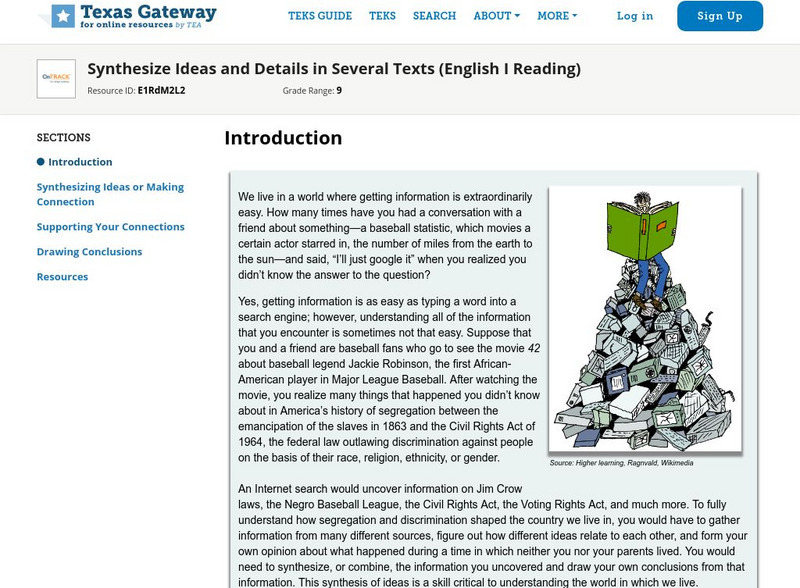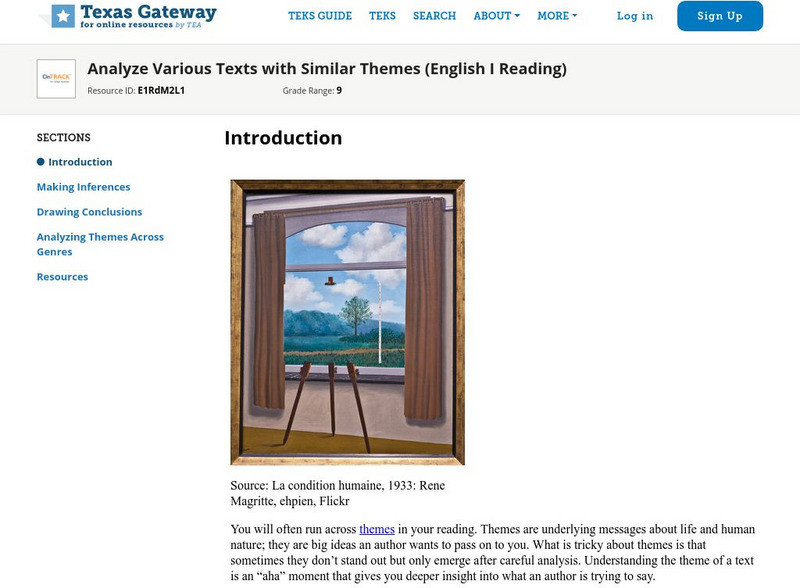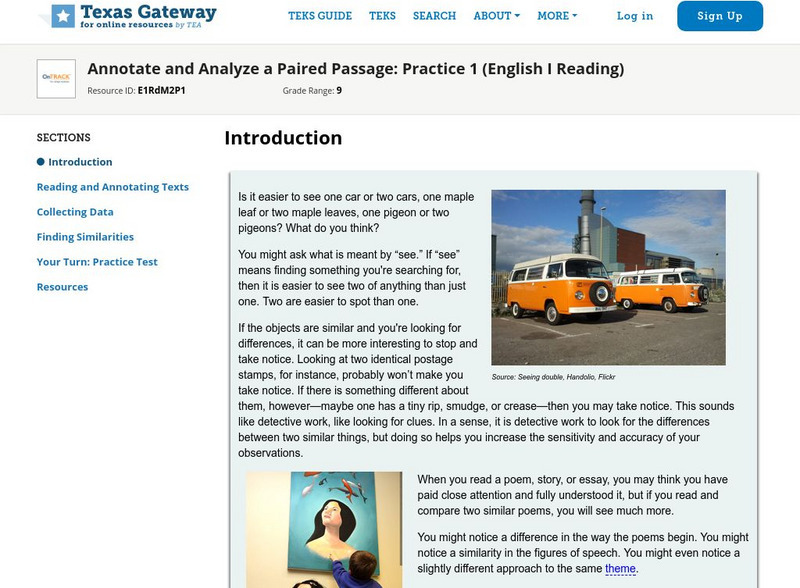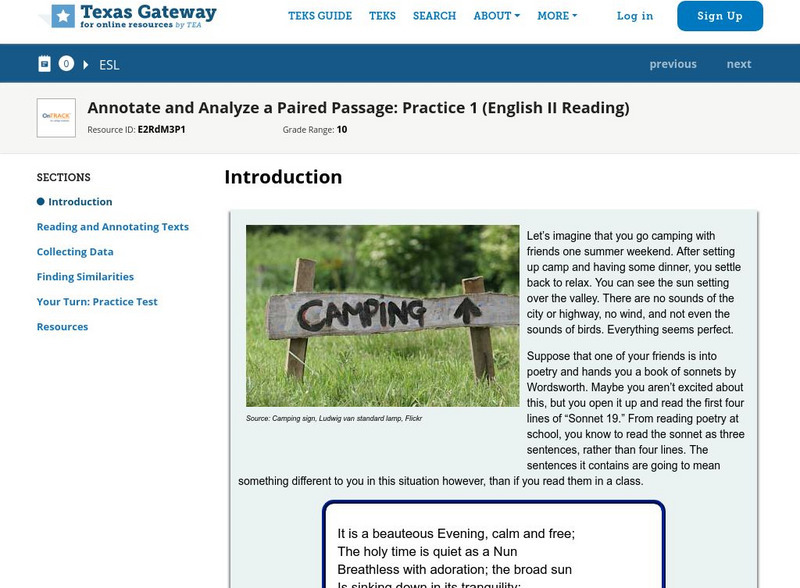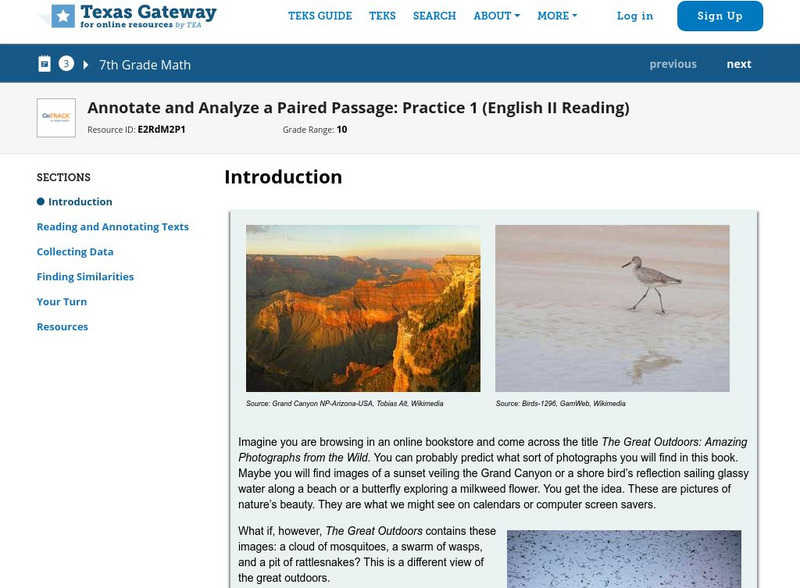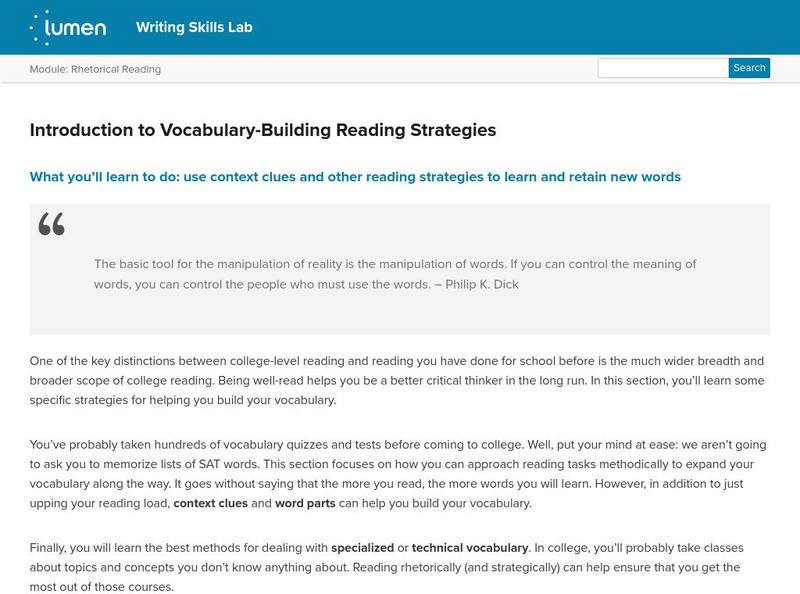Virginia Tech
How to Read Essays You Must Analyze
Provides a detailed discussion on how to approach an essay for analysis.
Other
English Companion: Reading Expository Text
Taken from "Reading Reminders: Tools, Tips, and Techmiques," the information on this website provides advice on how to read, understand, analyze, and write expository texts.
Palomar Community College District
Palomar College: Reading an Informational Text
Glenn Foss, an instructor at Palomar College, discusses some possible reasons why students have problems reading and recalling textbook material. Provides an outline for seven steps of effectively reading assigned material.
International Reading Association
Reading Online Articles: Comprehension Instruction
An article on improving reading comprehension through time-tested strategies as well as a summary of new hypotheses about effective comprehension instruction.
Colorado State University
Colorado State Writing Center: Critical Reading
In-depth instructions on critical reading with lots of links to more reading guides and activities. A good site to help improve reading skills to become a better writer.
Sophia Learning
Sophia: Connecting With Reading
A brief slideshow that identifies and defines the ways that readers can make connections while reading a text (Text to Self, Text to Text and Text to World) and instructions about annotating while reading. Includes a worksheet that...
Sophia Learning
Sophia: Reading Strategies: Tutorial
In this slideshow tutorial, students will review different types of reading strategies to promote comprehension of text. The strategies included are the following: making predictions, visualizing, questioning the text, retelling,...
AdLit
Ad lit.org: What's the Big Idea? Integrating Young Adult Literature
Drawing on New York City teachers' experiences, this article examines three ways to effectively integrate young adult literature into the curriculum: use core texts (usually novels, but also other genres as well) that the entire class...
Harvard University
Harvard College Writing Center: How to Do a Close Reading
A brief explanation of the tasks involved in doing a close reading in preparation for writing. This writer breaks the process into three steps which involve annotating the text, looking for patterns, and asking questions of the text.
Other
Siu Edwardsville: Professional Development Center: Lesson Plan: Inference [Pdf]
Lesson teaching the use of word selection, context, structure, and specific references in making inferences within non-fiction texts.
AdLit
Ad lit.org: Cognitive Strategies Toolkit
This article describes eight cognitive strategies - including monitoring, tapping prior knowledge, and making predictions - to help readers develop their comprehension skills.
Varsity Tutors
Varsity Tutors: Web English Teacher: Expository Writing
This Web English Teacher provides great links and resources for assistance, activities, and information about expository writing.
Polk Brothers Foundation Center for Urban Education at DePaul University
Depaul University: Center for Urban Education: Inference Organizer [Pdf]
Students will use a graphic organizer to help them make inferences. Students will list the literal text evidence and make an educated guess based on the text evidence.
Texas Education Agency
Texas Gateway: Analyze Texts With Similar/different Purposes
[Accessible by TX Educators. Free Registration/Login Required] Make complex inferences and use textual evidence such as imagery and figurative language to support understanding.
Texas Education Agency
Texas Gateway: Synthesize Ideas and Details in Several Texts (English I Reading)
Synthesize ideas and details in texts and support the connections with textual evidence.
Texas Education Agency
Texas Gateway: Analyze Various Texts With Similar Themes (English I Reading)
You will learn how to make inferences and draw conclusions about similar themes in various texts by finding supporting evidence within the texts.
Texas Education Agency
Texas Gateway: Annotate and Analyze a Paired Passage: Practice 2
Read and annotate paired texts in order to make inferences, draw conclusions, and synthesize ideas and details using textual evidence.
Texas Education Agency
Texas Gateway: Annotate and Analyze a Paired Passage: Practice 1
Read and annotate paired texts in order to make inferences, draw conclusions, and synthesize ideas and details using textual evidence.
Texas Education Agency
Texas Gateway: Analyze Graphical Sources: Practice 2 (English I Reading)
Analyze the factual, quantitative, and technical data in graphs and charts.
Texas Education Agency
Texas Gateway: Annotate and Analyze a Paired Passage: Practice 1
Read and annotate paired texts in order to make inferences, draw conclusions, and synthesize ideas and details using textual evidence.
Texas Education Agency
Texas Gateway: Annotate and Analyze a Paired Passage: Practice 1
Read and annotate paired texts in order to make inferences, draw conclusions, and synthesize ideas and details using textual evidence.
Lumen Learning
Lumen: Critical Reading: Specialized Reading Strategies
This lesson focuses on specialized reading strategies such as online reading, reading in math, science, etc., and reading charts and graphs. It provides text, videos, charts and graphs, graphics, and a self-check.
Lumen Learning
Lumen: Critical Reading: Reading Strategies
This lesson focuses on reading strategies including scanning, skimming, SQ3R, High-5 Reading Strategies, technology, and rhetorical context. It includes text information and videos.
Lumen Learning
Lumen: Rhetorical Reading: Intro to Vocabulary Building Reading Strategies
This article explains in general how to build vocabulary using reading strategies such as context clues.


